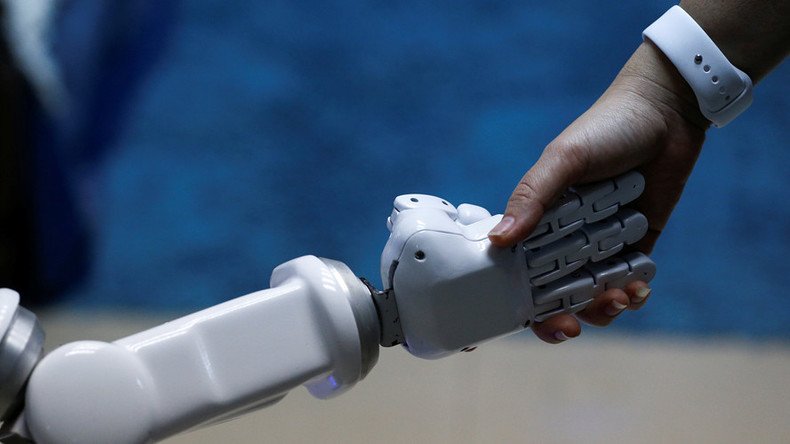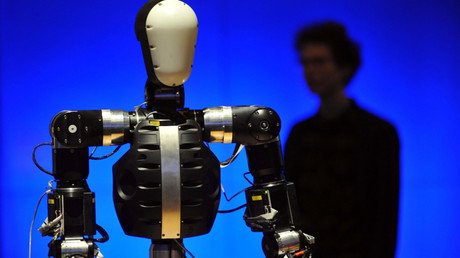Man & machine will be melded into 1 within 20yrs – IBM expert

A senior IBM inventor has predicted that within 20 years humans will be injected with nanomachines that will be able to repair and enhance our bodies and augment our thoughts.
In a submission to the Artificial Intelligence Committee of the UK’s House of Lords, John McNamara, who works at IBM’s Hursley Innovation Centre, said that the tiny robots will have enormous medical benefits.
“We may see AI nanomachines being injected into our bodies. These will provide huge medical benefits, such as being able to repair damage to cells, muscles and bones perhaps even augment them," McNamara said to the committee, which is weighing up the economic, ethical and social implications of artificial intelligence.
The expert predicted within two decades humans and machines will effectively be “melded” together, paving the way for huge advancements in human consciousness.
"We see the creation of technology that can meld the biological with the technological, and so be able to enhance human cognitive capability directly, potentially offering greatly improved mental (capabilities), as well as being able to utilise vast quantities of computing power to augment our own thought processes.”
"Using this technology embedded in ourselves and in our surroundings, we begin to be able to control our environment with thoughts and gestures alone,” he added.
While McNamara’s sci-fi-sounding claims highlighted the positive developments AI will bring, another expert warned that its continued rise will come at a cost.
“The immediate concern is that by ceding decisions or control to machines, the humans start accepting their decisions as correct or better than their own and stop paying attention,” Noel Sharkey, Emeritus Professor of AI and Robotics, University of Sheffield said.
READ MORE: ‘We’re at most dangerous moment in history of humanity,’ Stephen Hawking warns
“There is a growing body of evidence that the learning machine decision makers are inheriting many invisible biases among their correlations,” Sharkey, who is director of the Foundation for Responsible Robotics, added.
Sharkey’s concerns are echoed by other high profile voices from the world of science and technology including Stephen Hawking and Elon Musk.
Musk has repeatedly advocated restricting AI development and has warned that competition between nations in this area may lead to World War III.













